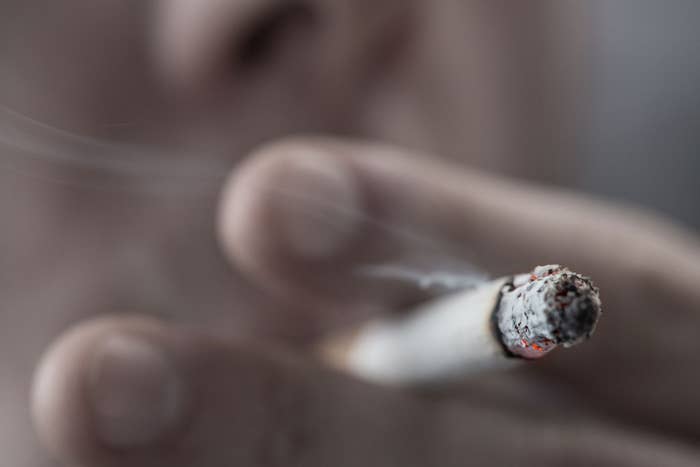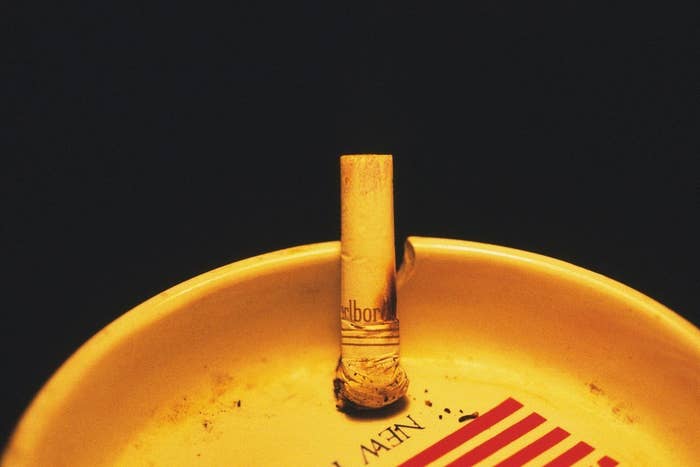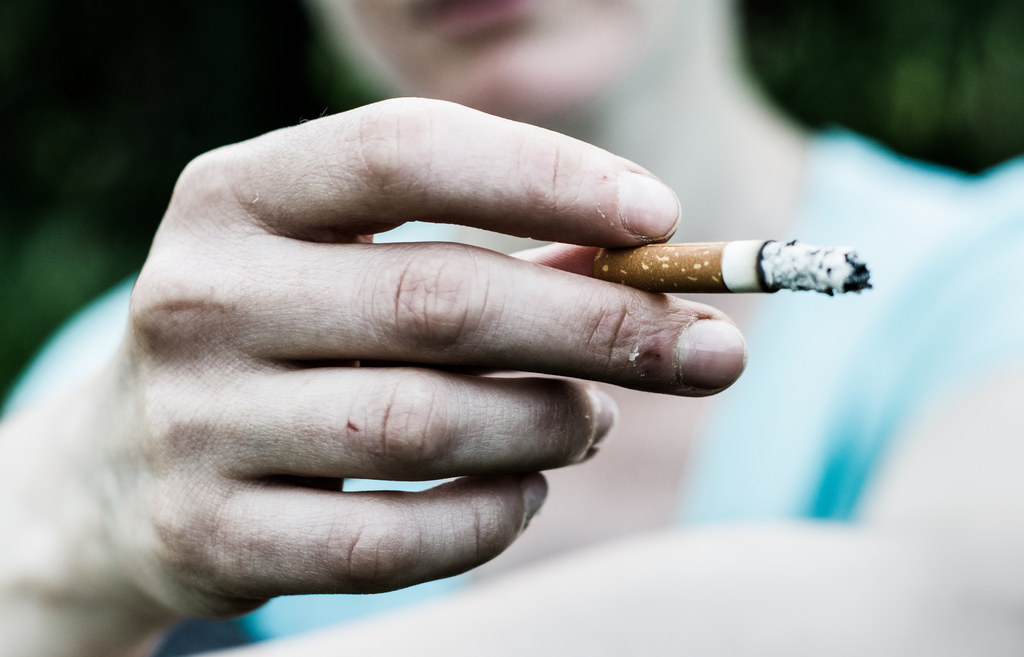In 2007 the government made it illegal to smoke in places of work in Britain.

The aim was to reduce passive smoking, also known as "second-hand smoke", or SHS.
Exposure to SHS is associated with increased risk of stroke and other cardiovascular problems, respiratory diseases, and various forms of cancer.
It was also hoped that the smoking ban would cause people to quit smoking, or not take it up in the first place.
Now a major new study has looked at the impacts smoking bans have on health.

The review found "consistent" evidence that in countries with smoking bans, people were less likely to be admitted to hospital for heart problems and stroke.
The exact reduction in risk varied from study to study, but one fairly typical example found that smokers in Scotland were 14% less likely to be admitted for acute coronary syndrome (ACS) after the ban, while ex-smokers were 19% less likely, and people who had never smoked were 21% less likely.
It found weaker evidence that smoking bans reduce lung problems.

It also found that the number of people dying of smoking-related diseases went down.
Again, the evidence was less conclusive – only 11 studies looked at mortality rates, and only eight of those found that the rates went down – but still persuasive.
Interestingly, the evidence that it caused people to stop smoking was much weaker.
Dr Kate Frazer, the lead author of the review, said that in "the period before the ban, you'd find a drop in smoking levels", because people try to quit ahead of a ban, but a lot of them fail and the numbers soon climb back up. She said: "It probably has stopped people smoking, it probably has reduced cigarette consumption, but the evidence is weak."
It's very hard to say that smoking bans cause any of these things.

But the researchers are pretty confident that the bans are the reason smoking harms have gone down.
Because they couldn't do RCTs, they tried to use natural experiments. They looked at areas that introduced bans to see how behaviour changed immediately afterwards in comparison with similar areas that didn't introduce bans.
It's not perfect, but Frazer says that while they can't say for certain that it's a causal link, harms go down soon after bans are introduced. Also, there is a "dose-response" effect – that is, the stricter a ban is, or the longer it has been in place, the more that smoking-related illnesses go down. That strongly indicates that the smoking bans caused the reduction.
The headline finding, then, is: The smoking ban seems to have done exactly what it was meant to do. It reduced the harms of passive smoking.
"The introduction of smoking bans probably leads to improved health outcomes, through a reduction in second-hand smoke exposure," said Frazer.
